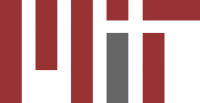Mikki Simon Macdonald - Collections Strategist, & Kari Smith - Institute Archivist at MIT Libraries
- MIT Libraries is in the process of reviving their Records Management Program.
- Discussion with the group on what items should be sent to Institute Archives.
- Mikki and Kari would like for the group’s help on brainstorming ways to best communicate this information to the MIT community.
- MIT has policies that involves records, archives and about their creation and retention.
- Some of these policies are outdated. Need to make the community aware of these policies and the updates.
- Records Life Cycle: 1. Identify/Survey physical or digital items that have value and a need to be archived. 2. Select items that should be sent to Archives. 3. Store items in the institute records center. 4. Protect items being stored. You can set an end of life date for when items should be destroyed i.e. shredded or recycled. 5. Make Accessible/Reuse items for originators or researchers.
- Physical and digital items are acceptable for Archives.
- Reviewed the definition of records, which is defined as: All records generated or received by the various administrative and academic offices of the Institute in the conduct of their business, regardless of the form in which they are created and maintained, are the property of the Institute and constitute archival material. The records covered by this policy include official printed material, correspondence, born-digital or digitized files, record books, minutes, committee files, financial records, and associated papers.
- Iron Mountain is the records management company storing MIT's inactive, non-permanent records.
- It’s good to have a records retention schedule review every 5 years.
- Reviewed the Records Retention Categories: Active - work of a current task force, property inventories. Inactive – Completed files of a task force, deemed historic. Permanent – is registrar student files. Historic/archival – Task force reports.
- Lab notebooks should be sent to Archives.
- Theses should not be sent to Archives.
- Department images that you want to be reproduced should be sent to Archives.
- Archives want to receive recordings, notes, documents, documentation about your thoughts, decisions and correspondence.
- Archives will already have final reports and publications sent to the president. No need to send to them.
- The items that created the final reports and publications, Archives wants to have.
- MIT Facilities permanent records will be in the department’s archives. Once a building is at their end of life, then that information should come to archives.
- Faculty work that is donated can be sent to archives for review and approval.
- MIT Museum was a part of Libraries in the past. Libraries works with the museum to determine which items should remain in the museum i.e. Wind Tunnel artifacts. The items that should be sent to archives i.e. Wind Tunnel documents.
- Should email accounts be archived? It would be nice to archive email accounts, but IS&T says not to share your account information.
- Mikki and Kari handed out a document with questions for the group’s input.
- Overall the group’s feedback was the following:
- The group is happy to partner with Institute Archives in developing a General Record Schedule. Create a small focus group to work with the archives team.
- Helpful to know what already exists in the archive collection.
- Good to know who at MIT can give the approval to destroy items (shred or recycle). Is it the department head that decides?
- Provide guidance on what information should be a part of the records management program.
- Have a list set to give or talk to DLCs about what items should be kept and sent to Institute Archives.
- See attachments for more details:
- Discussed next steps:
- Setup a small focus group to work with the archives team on items such as developing a General Record Schedule.
- AACII members would like to know what DLCs are a part of the records management program.
- AACII members would like to know what DLCs have items in the archive collection.
- Attend individual schools/AO meetings to discuss the records management program and inform what items should be kept and sent to archives.
- Reach out to the department heads to discuss the records management program and inform what items should be kept and sent to archives.
Administrators’ Forum Breakfast Planning
- The forum structure: keynote and/or panel (1hr.), table discussions/case studies (1hr.) with a summary/wrap up.
- Pete provided the group a draft of his proposal for the Administrators’ Forum.
- Proposal included the forum theme and talking points for the keynote speaker.
- Pete asked the group to review the draft and provide feedback.
- Group members suggested to be direct in the introduction to the administrators.
- This is a top down culture change.
- Forum should allow for honest discussions without encouraging administrators to vent.
- Panel should be able to provide tools and resources on how to handle certain situations.
- It would be helpful to have someone from legal on the panel to provide a framework about sanctions i.e. first time is a verbal warning, second time you’re written up and what happens if it’s the third time or more. Especially when dealing with tenure/senior staff.
- Conversations are being held, but there are no consequences for the behavior.
- Currently, staff feels powerless and this forum should make administrator officers (AO) and human resources leads feel empowered.
- Forum should address the following questions:
- What can AOs do if they don’t have a department head or if the department head is causing the problem?
- How can AOs create an environment that is comfortable, approachable and can build trust with staff?
- How can AOs stay informed about what is happening in their department?
- What tools, resources AOs can use to handle certain situations?
- What can AOs do when their department head is not supportive?
- Doreen Morris mentioned coming soon will be an academic counsel to handle student and staff complaints. The panel will consists of faculty members from each school.
- You can revoke tenure for harassment at MIT.
- MIT doesn’t broadcast sanctions publicly to the community.
- Yale produces a report about sanctions that happened on campus and make the report available to their community.
- Overall, forum topic is in the right direction.
- Pete asked for 2 members for help on the forum agenda and introduction wording. Andreea O'Connell and Macall Zimmerman volunteered to work with Pete.
- Ana Ludwig and Hasmik Kouchakdjian volunteered to work with Mary Ellen on logistic items for the forum such as name tabs, registrations.
- Forum space looks available in February at the Media Lab.
Poster Session
- Poster session is Friday, 10/25 from 1-3PM at the MIT Media Lab.
- Pete will be at the AACII table, but other members are welcome to join him.
- Members need to make sure they have their talking points ready at the table.


